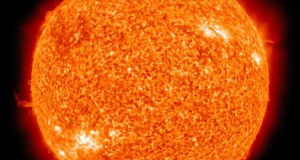 Jerusalem, May 30 – A joint report by the Ministries of Environmental Protection and Agriculture recommends that the government cease enforcement of pesticide limits aimed at protecting aquifers, since the underground water sources have already been depleted.
Jerusalem, May 30 – A joint report by the Ministries of Environmental Protection and Agriculture recommends that the government cease enforcement of pesticide limits aimed at protecting aquifers, since the underground water sources have already been depleted.
Minister of Agriculture and Rural Development Yair Shamir endorsed the report, released yesterday, that would effectively remove restrictions on the quantities of pesticides that farmers are permitted to use to protect their crops from insects and worms. Environmental Protection Minister Amir Peretz also signed off on the recommendations, which, if adopted, will allow the unfettered use of compounds such as DDT in agricultural settings. Whereas until now there has been a major environmental concern that such chemicals would seep into the ground and contaminate aquifers, a spate of relatively dry winters – normally the rainy season – has brought natural sources of water to such unprecedentedly low levels that no appreciable quantity of water is left in the underground sources anymore, rendering the danger moot.
Farmers are already preparing to take advantage of the change. “I’ve had a tanker full of the stuff ready to be used for years,” said Avi Mezahem, who grows peaches and plums. “I used to have to disguise it as other chemicals, but now I don’t even need to bribe the inspectors who come around to check things.” He added that he hoped the end of available pumping from the Coastal Aquifer would also herald the end of limits on the use of water for agricultural irrigation, and that he was tired of having to bribe those officials to overlook his profligate practices as well.
Chemical manufacturers are also looking forward to increased sales. “It will be nice to reduce paperwork and focus on straight sales instead of on dealing in illegally large shipments of the materials,” said Ben Gruenhaus, a spokesman for Haifa Chemicals. “Now we can concentrate our efforts on evading controls over dumping things in the Mediterranean.”
Israel has actually managed to reduce its per capita use of water over the last decade, which slowed down the aquifer depletion, but could not stop it entirely. At the same time, Palestinian use of water has remained steady or has increased, especially the use of unauthorized wells from the same underground sources that Israel uses.
Gruenhaus hopes to see the Ministry of Environmental Protection continue to adapt to the changing situation. “Eventually we’re going to produce so much hazardous waste that we’ll need more locations for dumping it,” he explained. “We’re considering proposing to the ministry that we start pumping our waste directly into the empty aquifers.”



